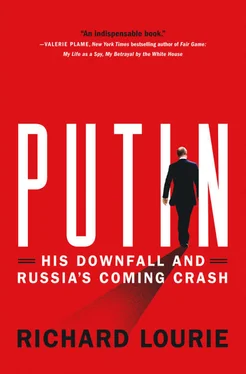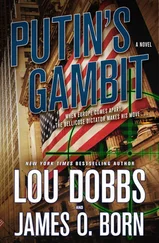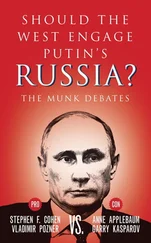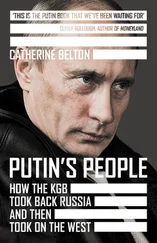One agent Putin ran did not turn out too well. Klaus Zuchold was a Stasi officer recruited by Putin over a five-year period, only formally joining the KGB after the fall of the Berlin Wall, when KGB penetration of Germany became more important than ever. Just after the two Germanys were reunited, Zuchold, fearing exposure, surrendered himself to German intelligence, revealing that he had been run by Putin, who was also personally running a senior police inspector in Dresden.
Zuchold had immediately been charmed by Putin’s jokes about police, Jews, and the crude Russian soldiers who stole vegetables from Zuchold’s garden. “Putin is a man of few words. He is impenetrable and he mostly lets other people speak. He gives away very little but is clearly very driven and determined to get what he wants: friendly and seemingly very open, luring people into opening up but always in control. Whenever we drank together he always made sure he was at least three glasses behind everyone else.” [107] Mark Franchetti, “Agent Reveals Young Putin’s Spy Disaster,” Sunday Times , London March 19, 2000.
False modesty and professional ambiguity aside, Putin’s downplaying of his work was also quite sincere. The KGB was increasingly becoming an organization that processed paperwork. One agent quipped that Soviet intelligence runs on paperwork alone and [its] “main advantage … resides in its newly acquired ability to exist without undercover agents.” [108] Shvets, Washington Station , p. 27.
And, as one of Putin’s own colleagues put it: “Our work was seventy percent paperwork and sometimes was unbearably boring.” [109] Usoltsev, Sosluzhivets , p. 24.
KGB generals and liberal intellectuals rarely agree on anything, but such is Putin’s power to unite people that he has even brought these disparate groups together in their derision of his abilities as a spy. In her biography of Putin, The Man Without a Face, Masha Gessen writes: “Putin’s biggest success in his stay in Dresden appears to have been in drafting a Colombian university student, who in turn connected the Soviet agents with a Colombian student at a school in West Berlin, who in turn introduced them to a Colombian-born U.S. Army sergeant, who sold them an unclassified Army manual for 800 marks.” [110] Masha Gessen, The Man Without a Face (New York: Riverhead, 2012), p. 66.
KGB colonel Sergei Tretyakov, who ran Russian intelligence operations in the United States from New York after the fall of the USSR and who attended the Red Banner Institute at the same time as Putin did, was aghast at the very suggestion that he might have had anything to do with Putin afterward: “Of course I did not. Not only because we worked in different regions of the world, but first of all because I was a successful officer working in the Center and Putin was never successful in intelligence and never had a chance to work in headquarters. He was always kept in a provincial KGB station in a low and unimportant position.” [111] Earley, Comrade J , p. 330.
Putin is further belittled for receiving only one award, a bronze medal awarded him by the Stasi in 1988, and for only advancing one rank, from major to lieutenant colonel, in his more than four years of service abroad.
Putin, of course, doesn’t quite agree with these characterizations of himself. Responding to the charge that Dresden was a provincial posting, he said: “Probably. Actually, from that perspective, Leningrad is also a province. But I was always quite successful in those provinces.” [112] Putin, First Person , p. 67.
The bronze medal Putin was awarded was pooh-poohed by Markus Wolf, the Stasi intelligence chief, who said it was awarded to every secretary provided she didn’t have any gross violations on her record. Bristling, Putin said Wolf was “entirely correct…. He just confirmed that I didn’t have any gross violations in my record” [113] Ibid., p. 74.
and pointed out where Wolf was incorrect—in saying that Putin was awarded the medal simply for “services” when it had in fact been awarded for “outstanding services.” Spies can be as vain as ballerinas.
Those who denigrate his rising only to the rank of lieutenant colonel neglect to mention that the KGB has two hierarchies—a military-style one rising from private to general, and a parallel one among case officers and administrators. For example, a senior case officer like Putin would have authority over someone with a higher rank if that person was working for Putin on a given operation.
Putin’s promotions came more on the administrative side than on that of the more formal ranks. As he says: “I was a senior case officer. My next job was assistant to the head of the department. That was considered quite a good advance. And then I was promoted to senior assistant. There was nothing higher. Above me was the top managerial level, and we only had one boss.” [114] Ibid., p. 72.
The KGB in the late 1980s was ruled, as one officer put it, by “Lord Paperwork.” [115] Shvets, Washington Station , p. 25.
There was no time for either spectacular successes or catastrophic failures—agents were too busy filling out forms and filing reports.
And if Putin had had any significant successes in Dresden they would have by their very nature remained secret. In espionage a known success is half a failure.
In those increasingly dreary years, Putin had three consolations: family, beer, and Gogol. He adored his daughters and every day would take Masha to the day-care center and Katya to the nursery. Things were a bit more complicated with his wife, Lyudmila, a good-looking blonde and former Aeroflot stewardess. Lyudmila is on record as saying that their first years together were “lived in total harmony … a continuous sense of joy, as though we were on holiday.” [116] Putin, First Person , p. 61.
In fact, there had been some problems right from the start—she found him even more reserved than most Leningraders, and he could be insultingly, infuriatingly late for their dates, an hour and a half being more or less the norm. Already in the KGB, he never told her that, saying he worked with the police. Lyudmila frequently had the feeling she was being probed and tested by Putin. It was the wife of one of Putin’s friends who told her he was KGB, and a young man who appeared out of nowhere on the street declaring his love for Lyudmila may have been set up by Putin to check her reactions and her loyalty. He considered any housework beneath him and always imposed his will, to which, she says, she “always submitted.” [117] This and other Lyudmila Putin quotes are in my translation from Oleg Blotsky, Vladimir Putin: Istoriya zhizni (Moscow: Izdatelstvo Mezhdunarodniye otnosheniya, 2002). No page numbers because the section was from an online post. Apparently the book was published in English that same year as Vladimir Putin: The Road to Power .
She wanted their second daughter, born in East Germany, to be called Natasha, but Putin said, “No, it will be Masha,” and despite all Lyudmila’s tears and pleas, Masha it was.
Not a natural cook and homemaker, she trembled inwardly awaiting his reaction to dinner. He’d never say anything. Finally, once unable to restrain herself, she asked: “How’s the meat?”
“On the dry side.”
His second consolation was the excellent and easily available German beer. He was buying his beloved Radeberg by the keg, and since it was only a five-minute walk from house to office he put on twenty-five pounds in no time.
And reading Gogol’s novel Dead Souls was particularly piquant because the hero, Chichikov, goes about provincial nineteenth-century Russia buying up serfs who have died but are still on the census rolls and thus can be used as collateral until the next count is made. A good deal of the paperwork done by the KGB in the late 1980s was based on the reports of invented agents and was actually information gleaned from local newspapers. Gogol would have loved it.
Читать дальше





![Stephan Orth - Behind Putin's Curtain - Friendships and Misadventures Inside Russia [aka Couchsurfing in Russia]](/books/415210/stephan-orth-behind-putin-s-curtain-friendships-a-thumb.webp)






